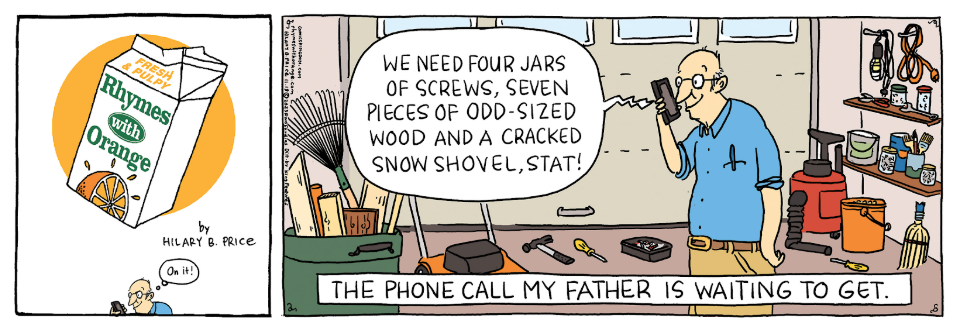Gravy Boats, Duran Duran, and Goodwill: A Gen X Guide to Downsizing Your Parents’ Home
Top 5 Reasons to Get Rid of Stuff (before it gets rid of you)
Because You’re Not Starting a Museum. No one is buying tickets to see 17 chipped gravy boats.
Future You Will Thank Present You. Less to haul, less to dust, more time to enjoy your parents while they are here.
Every Object Has a Story—Decide Which Ones Deserve an Encore. Share the memories, then set the item (and yourself) free.
Your Siblings Will Argue Less. Fewer piles = fewer “but I wanted that” showdowns.
It’s Weirdly Cathartic. The thunk of a trunk slam after a Goodwill drop-off? Better than therapy.
I met a friend for a hike the other day, but before we even hit the trail, she popped open the trunk of her car and beckoned me over like the Ghost of Christmas Future to show me what could be. Inside was a cardboard box, the lid lifting to reveal a treasure trove of hardcover children’s books. Charlotte’s Web. Roald Dahl. My entire childhood bookshelf flickered to life in my mind’s eye. She explained that—at 70—she was getting all of her “stuff” in order so her kids—now in their 40’s—wouldn’t have to someday. I didn’t know whether to thank her for the cautionary tale or cling to the box and run.
“They don’t want it,” she said.
“They don’t want it?!” I asked.
Both of us knowing, of course, they wouldn’t want it.
That’s the thing about stuff. We save it, polish it, cart it from house to house—and for what? A future yard sale no one has the energy for?
Rhymes With Orange by Hilary B. Price
My Parents’ Stuff
By now, my dad (gone since 2007) is down to one plastic box in my garage, his awards proudly displayed in the garage bathroom—a story for when we know each other better. My mom (who died in 2024) is down to three boxes: desk trinkets, mugs, business cards, a few datebooks so I can see her handwriting—the curly tails on L’s, the sharp peak of her A’s. No display cabinet. Just the essentials of a decade-long caregiving chapter.
My sister Emily always packed her up for big moves, which I’m grateful for. We once sat in the attic of our childhood home, sorting through our collective 80’s detritus: stamps, coins, postcards, Barbie, G.I. Joe. By 1995, when Mom sold the house, I was already in California. I shipped a few boxes west—middle school notes (“Do you like me? Yes/No”), short stories where my friends and I were paired off with members of Duran Duran (I was with Roger, the drummer, obvs).
I also have three full sets of inherited dishes: Grandma Millie’s, Grandma Shirley’s knockoff Depression glass, and my parents’ wedding china. Each comes with elaborate soup tureens, sugar bowls, and gravy boats. All unused. Probably cursed. Definitely dusty.
The Furniture Tsunami
When I flew back from Melbourne in April 2023, Mom had been moved to rehab by Emily and my friend St. Rosemary. The furniture from her old condo was crammed into my garage like a hoarder’s Tetris.
That’s when I called a friend on the board of The Living Room, a nonprofit that refurbishes units for formerly homeless women in Santa Rosa. They brought a flatbed truck. I helped load the furniture, slammed the trunk, and felt the most satisfying thunk of my life.
Why We Keep It—And Why We Let It Go
Some of us cling to our elders’ possessions out of love, guilt, or the fantasy that someone—anyone—will cherish them like we do. But here’s the truth: the stories matter more than the stuff. And sometimes the best way to honor those stories is to pass the items on so they can have a new chapter with someone else.
dōteworthy
The Gentle Art of Swedish Death Cleaning by Margareta Magnusson — a short, funny, and surprisingly comforting guide to clearing out your things before someone else has to. Perfect for Gen Xers navigating the dual task of managing their own “stuff” while helping parents part with decades of treasures.
Check it out at your local library.
Consider donations to local places such as The Living Room where the old stuff will get a new life.
dōtenote
How are you handling all of the stuff? How are you feeling about all of it? Drop us a dōtenote in the comments.

